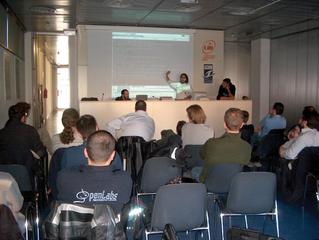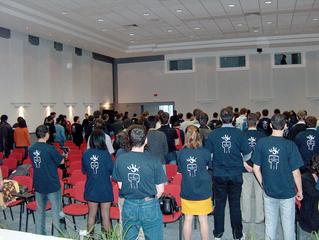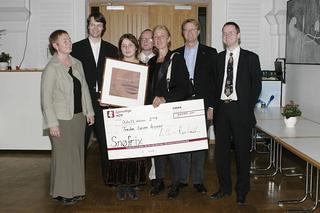
Italy's free software community has been working hard to enforce its social networks. After the LUG Camp in Rome in mid September, and the successful Code Jam event in Ferrara with nearly 300 attendees who were there to listen to talks given by Andrea Arcangeli, Dave Cross, Alex Martelli, Allison Randal, Randal Schwartz, Michele Simionato, Simo Sorce and Larry Wall on October, 9, Italian Debian Developers decided to meet in Milan October, 16 to 17 for the first time. Italy with its nearly 40 volunteers involved in packaging Debian software, is one of the countries with a high density of Debian developers.
Carlo Contavalli, the initiator of this event, a Debian developer, and also a member of Milan OpenLabs, summarized the aim of this event as follows. Although various local free software activities are happening around Italy almost all the time, the people involved have seldom heard of each other, let alone worked together. Learning from German experience, it was hoped that the Milan Mini Debconf would help improve the social networks between Italian Debian developers.
The event featured talks about Custom Debian Distributions (CDD), Debian Packages Tags (Debtags), User Mode Linux, and the Gnu Arch revision control system TLA. Interestingly, overnight accommodation for many of the 50 participants from all over Italy was arranged at the "Postello" guest house which has a Linux-based booking system.
http://postello.realityhacking.org/
http://debtags.alioth.debian.org/

